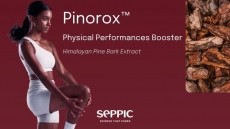Study finds more evidence of olive leaf extract’s benefits for blood pressure

Researchers from the University of Reading, Massey University, and the Commonwealth Scientific Industrial Research Organization conducted a randomized, controlled, double-blind, crossover intervention trial published in the European Journal of Nutrition.
“The trial was designed to examine the effect of [olive leaf extract] on 24-h ambulatory blood pressure and a range of related vascular, lipid, and inflammatory markers in 60 pre-hypertensive male volunteers,” they wrote in the report.
“Our data support previous research, suggesting that [olive leaf extract] intake engenders hypotensive and lipid-lowering effects in vivo,” they added.
The study
Subjects, aged 24-72, were randomly assigned to consume a liquid olive leaf extract supplement or a control twice per day for six weeks. The subjects then went through a 4-week "washout period", before crossing over to the other group (control or extract) for another six weeks. The commercially available extract used was manufactured by Comvita, who also funded 50% of this study through a Technology for Business Growth grant.
Consumption of other olive-containing products as well as alcohol was to be avoided during the trial for the duration of 16 weeks. Subjects did clinical visits at weeks 0, 6, 10 and 16, where temperature, blood pressure, vascular functions, and body biochemistry were measured.
Observations
For this trial, the researchers saw that diastolic blood pressure, systolic blood pressure were all significantly reduced following intake of the olive leaf extract relative to control.
“Previous studies have indicated potential blood pressure and lipid-lowering effects of [olive leaf extract] in humans, but results have thus far lacked consistency,” the researchers wrote, speculating that it might have been because of differences in phenolic dose, duration, and study design.
“The present study has strengthened the existing body of evidence that olive leaf extract has the potential to favorably modify blood pressure and plasma lipid profiles,” they added. “In the near future, there may be enough evidence for this advice to be extended to include phenolic-rich foods.”
Source: European Journal of Nutrition
Published online ahead of print, doi:10.1007/s00394-016-1188-y
Impact of phenlic-rich olive leaf extract on blood pressure, plasma lipids and inflammatory markers: a randomised controlled trial
Authors: S. Lockyer, I. Rowland, J. Spencer, P. Yaqoob, W. Stonehouse















